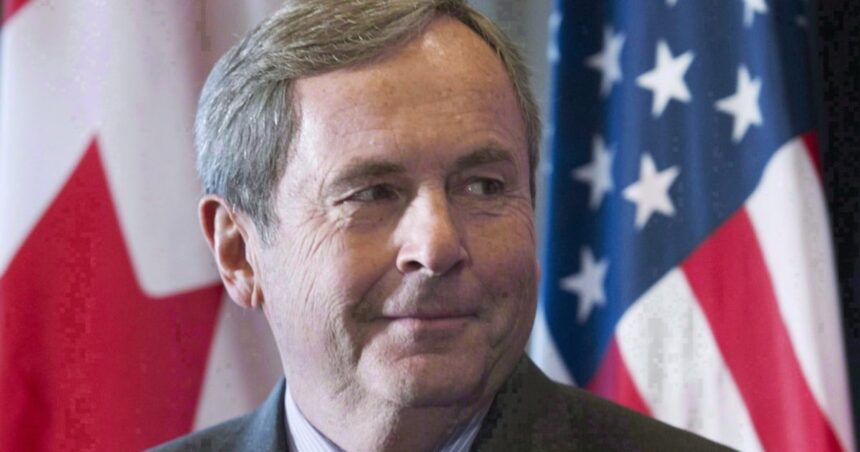The clock is ticking on Canada’s efforts to forge a new trade agreement with the United States before President-elect Donald Trump takes office, but according to a former Canadian ambassador, Ottawa faces a nearly impossible timeline.
David MacNaughton, who served as Canada’s ambassador to the United States from 2016 to 2019, warned yesterday that the Trudeau government’s goal of securing a comprehensive trade deal by July 21, 2025, is “not realistic” given the complexity of negotiations and America’s shifting political landscape.
“Having been through this before during the CUSMA negotiations, I can tell you that these are incredibly complex agreements that typically take years, not months,” MacNaughton told CO24 News in an exclusive interview. “The July deadline is ambitious to the point of being unattainable.”
The urgency stems from Trump’s campaign promises to implement sweeping tariffs against trading partners, including a potential 25% levy on Canadian imports. Prime Minister Justin Trudeau has instructed his cabinet to prioritize reaching a new bilateral agreement that would shield Canada from such measures before Trump’s inauguration.
Minister of International Trade Mary Ng has been tasked with leading the pre-emptive negotiations, but faces significant challenges. According to CO24 Business analysis, Canada exported goods worth $476.8 billion to the United States in 2023, representing nearly 75% of the country’s total exports.
“The stakes couldn’t be higher for Canada’s economy,” said Goldy Hyder, president of the Business Council of Canada. “Every day without a secure trade agreement introduces tremendous uncertainty for businesses on both sides of the border.”
MacNaughton emphasized that beyond the time constraints, Canada faces strategic challenges in how to approach the negotiations. “The issue isn’t just the timeline—it’s whether Canada should be negotiating from a position of apparent weakness and anxiety,” he explained. “That rarely produces favorable outcomes in international relations.”
Trade experts note that any meaningful agreement would require ratification by the U.S. Senate, adding another layer of uncertainty. Dr. Meredith Lilly, Simon Reisman Chair in International Affairs at Carleton University, points to additional complications.
“The Americans haven’t even appointed their trade representative yet,” Lilly told CO24. “Without knowing who will be across the table, Canada is essentially preparing to negotiate with ghosts.”
The opposition Conservative Party has criticized the government’s approach, with Leader Pierre Poilievre suggesting Canada should focus on strengthening its domestic economy rather than “scrambling for special treatment.”
Meanwhile, Canadian industries most vulnerable to potential tariffs—including automotive, aluminum, steel, and agriculture—have formed a coalition to advise the government on negotiation priorities.
“We’re not just talking about abstract trade policy,” said Flavio Volpe, president of the Automotive Parts Manufacturers’ Association. “We’re talking about hundreds of thousands of Canadian jobs that depend on predictable access to the American market.”
As world markets watch closely, economists warn that prolonged uncertainty could trigger investment hesitation across multiple sectors. The Canadian dollar has already experienced increased volatility as traders attempt to price in various trade scenarios.
When asked what alternative strategy Canada might pursue, MacNaughton suggested a more measured approach. “Rather than rushing toward an arbitrary deadline, Canada might be better served by demonstrating the mutual benefits of our trading relationship while preparing robust contingency plans.”
As the summer deadline approaches, the fundamental question remains: can Canada protect its economic interests in the face of an unpredictable trading partner, or are we witnessing the beginning of a new, more protectionist era in North American commerce?










